#Charles Stewart Parnell
Text
#OTD in Irish History | 17 April:
In the Liturgical calendar, today is the Feast Day of Saint Donnán of Eigg, a Gaelic priest, likely from Ireland, who died on this date in 617. He attempted to introduce Christianity to the Picts of northwestern Scotland during the Early Middle Ages. Donnán is the patron saint of Eigg, an island in the Inner Hebrides where he was martyred. The Martyrology of Donegal, compiled by Michael O’Clery…

View On WordPress
#irelandinspires#irishhistory#OTD#17 April#Bernadette Devlin#Charles Stewart Parnell#Co. Wicklow#Fiachra Mangan Photography#Glenmalure#History#History of Ireland#Ireland#Irish History#Lord Mayor of Cork#Paul McGrath#The Black Pearl#Today in Irish History#Tomás MacCurtain
9 notes
·
View notes
Text
“No man has the right to fix the boundary to the march of a nation. No man has the right to say to his country - thus far shalt thou go and no further.” ~ Charles Stewart Parnell
2 notes
·
View notes
Text
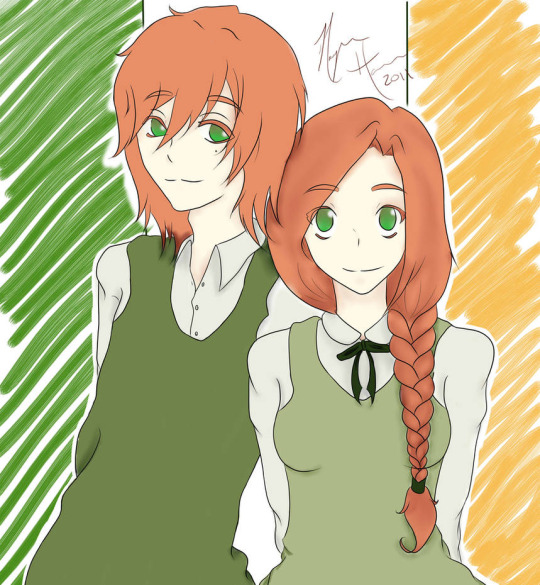
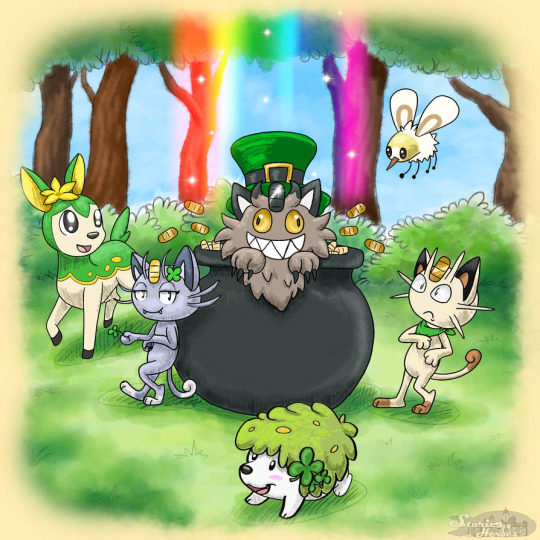
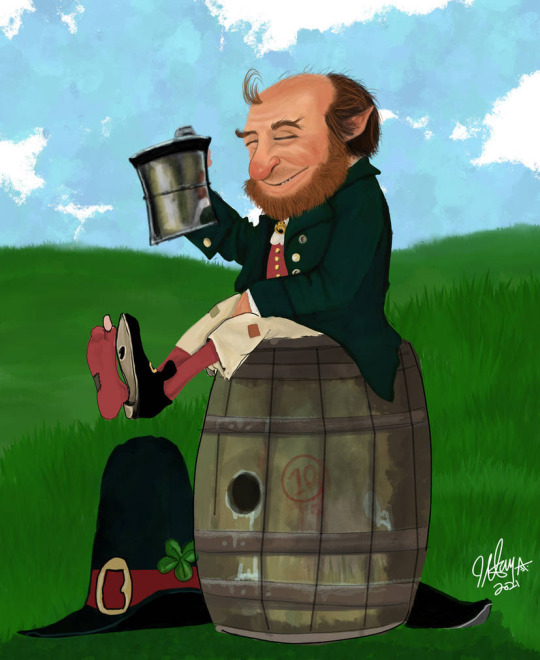

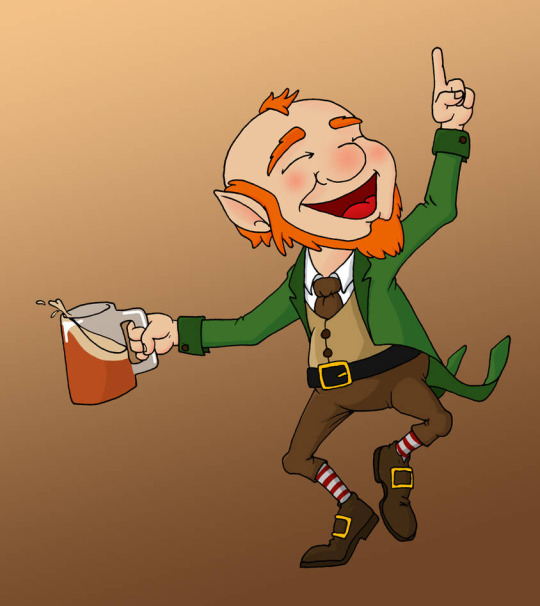


Happy St Paddy’s Day
#shut up alex#personal#st patrick’s day#st patricks day#irish#ireland#celtic#irish american#leprechaun#st patrick#cu chulainn#hugh o’neill#brian boru#theobald wolfe tone#daniel o’connell#charles stewart parnell#patrick pearse#michael collins#bobby sands#sonic#pokémon#sonic the hedgehog#st patricks day 2024
6 notes
·
View notes
Photo



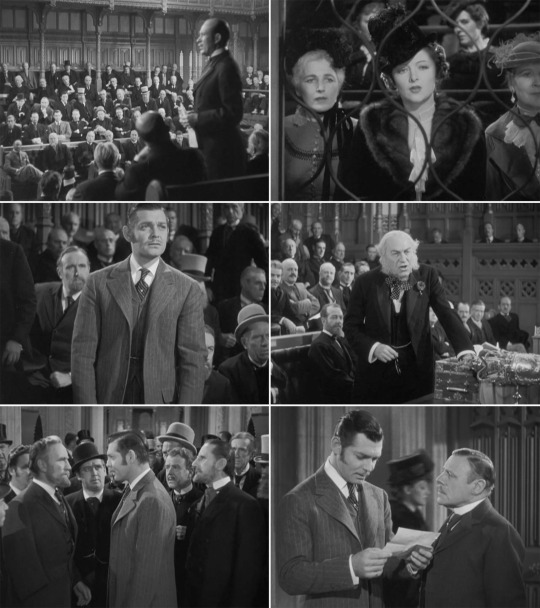
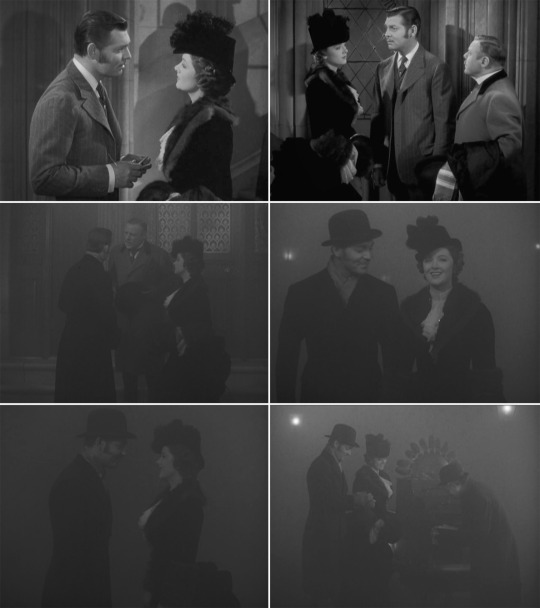
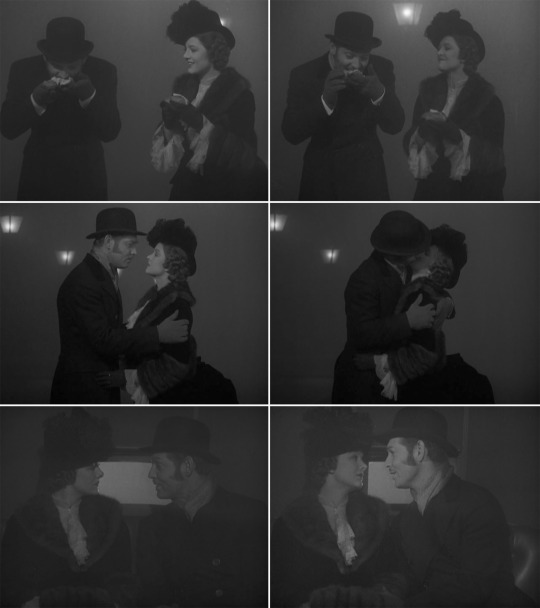

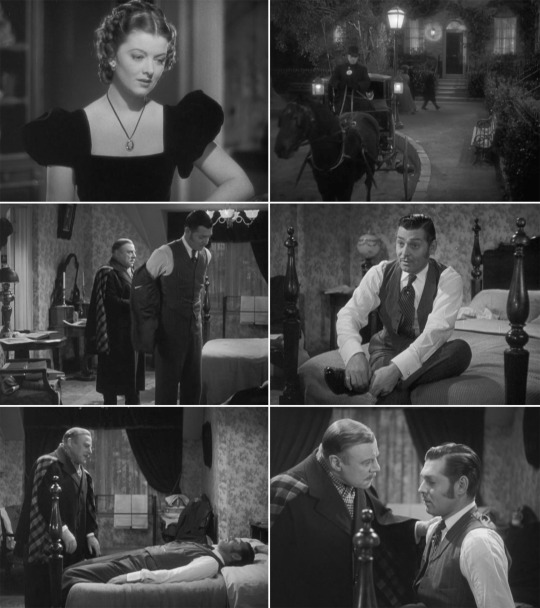
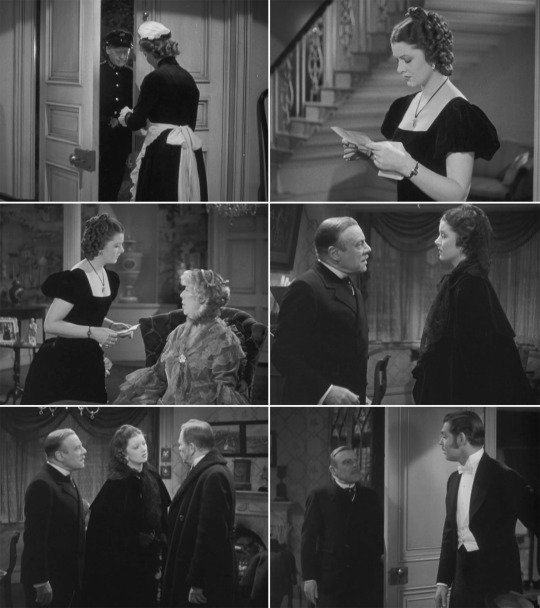
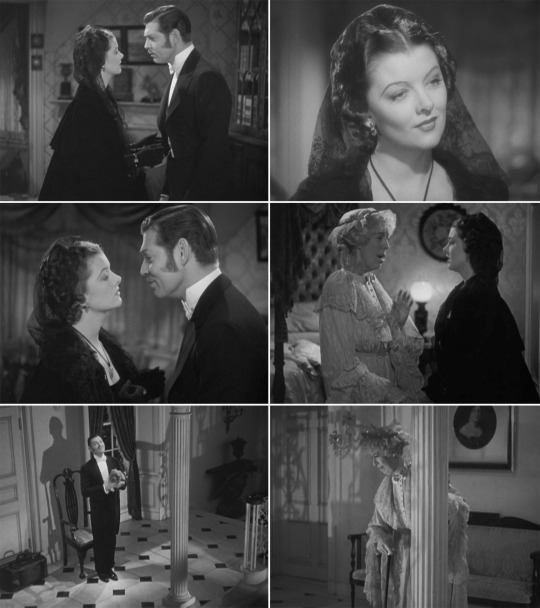
Parnell is a 1937 biographical film starring Clark Gable as Charles Stewart Parnell, the famous Irish politician. It was Gable’s least successful film and is generally considered his worst, and it is listed in The Fifty Worst Films of All Time.
Part II
#Parnell 1937#Parnell movie#biographical film#Clark Gable#Charles Stewart Parnell#old hollywood#old hollywood movies#old hollywood drama#old hollywood classic#golden age of hollywood#old movies#costume drama#historical drama#Myrna Loy
9 notes
·
View notes
Text
DUBLINBIKES DOCKING STATION 97
Today as an experiment I invited Google Bard to describe Dublinbikes Docking Station at Kinmainham Gaol and here is what I got
ACCORDING TO GOOGLE BARD
I asked Google Bard to describe Dublinbikes Docking Station at Kinmainham Gaol and here is what I got:
Dublinbikes Docking Station 97 is located at Kilmainham Gaol, a former prison in Kilmainham, Dublin, Ireland. The station is located at the corner of Inchicore Road and Kilmainham Lane, just a short walk from the entrance to the gaol.
The station has 12 spaces for…

View On WordPress
#Anne Devlin#Charles Stewart Parnell#common criminals#Countess Markievicz#Docking Station#DublinBikes#Fotonique#Gaol#Google Bard#Infomatique#Jail#Kilmainham Gaol#leaders of the 1916 Easter Rising#National Monument#opened in 1796#political prisoners#Public Transport#Robert Emmet#Station 97#stonebreaker’s yard#struggle for independence#the Fenians#William Murphy
0 notes
Text
Every time I need to purchase gifts for someone that one post about how it's only easy to buy gifts for people who have obsessions becomes more and more real
#buying gifts for my brother who is obsessed with [redacted] FC is soooo easy. as is for my mother who is obsessed with charles#stewart parnell and james joyce. however I have never known what to get anyone else in my life#jory.txt
8 notes
·
View notes
Photo
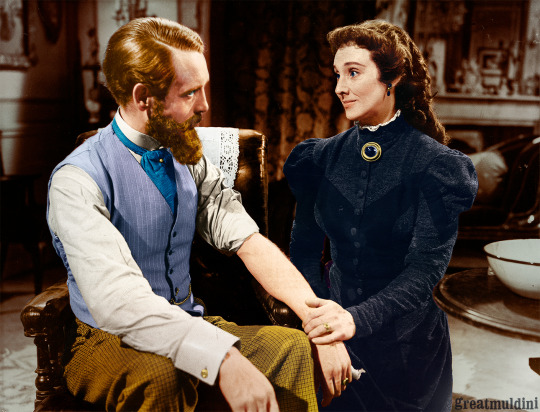
The events of 6 December 1890 were neither preordained nor were they premeditated. Nothing that transpired on the day was inevitable or irreversible: participants chose to stay in character, and to act out their roles in what would eventually be described by biographers and historians as the Parnell Tragedy (Jules Abels, 1966).
Everyone at the time would have been aware of the historical significance of their actions, if not the long-term consequences - excluding of course, the one female member of the cast who could not possibly have known what she was doing. By dint of this congenital deficiency she would also quite naturally be blamed for causing "Ireland's misfortune." Simple and satisfying in terms of its mass market appeal, feminine impulsivity does little to explain the supposedly rational decisions taken by the men around her in the name of patriotism and political expediency - which far from producing an amenable solution served only to exacerbate the crisis. Whereas the exact circumstances and full cast of characters have faded over time the larger-than-life figure of Charles Stewart Parnell still towers over the events of 6 December 1890 as the one man who could have had it all - and lost it all.
Sixty-four years later, the Fall of Parnell inspired an episode of the BBC's "experimental" television series You Are There which set out to present the known historical facts, faithfully, but with an added dimension unique to the new medium: actors would impersonate the key personnel as in a conventional re-enactment. While going about their "business," however, they would be interviewed by modern television reporters. The curious anachronism underlined the artificiality of the concept; it meant the programme was deliberately drawing attention to itself which would have been an unwanted distraction, for You Are There it was the defining feature. Neither the programme nor its - fictitious - journalists were interested in the exploration of alternative histories or in-depth character studies: the point was to demonstrate the possibilities of "live" television, ironically, in a simulated setting. Fact and fiction are trading places as the reality of 1890 becomes the subject of a 1950s fantasy, and the medium of the future interrogates the evidence of the past. For the actors it would have been a challenge to navigate between imaginative portrayal of a fully formed human being and the faithful rendition of the intrinsically incomplete historical record.
The historical record states that Charles Stewart Parnell was born in 1846. The son of a Protestant Irish landowner and an American mother was not naturally predestined to champion the cause of destitute Catholic tenant farmers; indeed, nothing in his early life pointed to any such leanings. As an aristocratic country gentleman he had nothing to fear and everything to gain from the firm imperial rule exerted by the British Crown over the Island of Ireland.
And yet it was Parnell, the English-educated man of pedigree, who emerged as the voice of the starving rural population. Having decided to enter politics for reasons that are still unclear, he found his calling as the Westminster MP for County Meath not in the defence of privilege but in the vocal support - initially for land reform and then increasingly for Irish nationalism ("Home Rule"). Over the next five years Parnell gained a reputation and a following as a fiery orator back in Ireland and a force to be reckoned with in the House of Commons, where is name became synonymous with the new parliamentary tactic of "obstructionism." If the English politicians could not be moved to act in Ireland's interest Parnell vowed to meddle in English affairs. And meddle - or obstruct - he did. After a century of inaction and neglect, the Irish Question seemed relevant again, if only because its proponents made it impossible for English laws to be passed. Parnell seemed to thrive on his tactical manoeuvring which he was prepared to carry to painful extremes, on multiple occasions – including arrest and imprisonment, at the risk of damaging his already fragile state of health.
By 1880 Parnell controlled both the radical grassroots movement in Ireland and the parliamentary representation of Irish interests in London. The position made him a frequent dinner guest in the homes of friends and allies, where on several occasions he also enjoyed the hospitality of Mrs Katharine O'Shea, the English wife of a fellow Irish MP, who was sympathetic not only to the cause but to the man who personified the struggle. Mrs O’Shea had a discreet arrangement with her husband, Captain William “Willie” O’Shea, the Member for County Clare and Galway: their marriage would exist on paper only for the benefit of Willie’s career; while he conducted his business in London she would reside at their official family residence and entertain important visitors. Parnell would often stay as a guest of the family - to recuperate after gruelling campaigns in Ireland, was the official explanation given.
For the next ten years the couple conducted an illicit affair that produced four children and saw the singled-minded saboteur of the political system lead a double life away from Parliament and in the company of Katharine O’Shea. The relationship was not as one might assume a tempestuous whirlwind romance but a curiously claustrophobic still-life of Victorian domesticity - an alternate, self-contained reality where Parnell and his "Queenie" could act out their fantasy of living simply as husband and wife. Their apparent longing for simplicity may also help to explain the ease with which they expected to lead two entirely separate and parallel lives, apparently unaware of or unwilling to acknowledge the inherent paradox and inevitable complication.
In the political arena Parnell was for most of the 1880s an extremely effective manipulator of moods and opinions, always weighing and adjusting the demands of Irish nationalists against the calls for the use of force from the British press, the public, and its politicians. Anyone looking for a core belief or deeply held conviction would have been disappointed by the vagueness of Parnell's own stated aims - which he used to great advantage because it allowed him to gain the confidence of the British side and the respect of his own following. As a small but significant minority, the Irish (or Home Rule) Party under Parnell's skilful machinations was able to make demands in return for the votes it lent to either one of the two dominant forces in 19th century British politics: the Tory (Conservative) Party or the slightly more reform-oriented Liberal Party.
Parnell’s elusiveness became his trademark: the less he said in public, the fewer appearances he made in Parliament, the taller he grew in stature. In 1887 he was accused of having endorsed the murders of two British politicians in Dublin. When the alleged endorsement turned out to be a forgery two years later, the popular reaction was one of relief and renewed admiration for the noble freedom fighter who had been so horribly maligned. By 1889, it seemed as if nothing could go wrong for Charles Stewart Parnell.
Home Rule seemed within reach when, in May of 1889, Katharine O'Shea learned of the death of a wealthy aunt whose fortune she was to inherit. The additional funds would have been a welcome boost to Katharine's finances had it not been for her husband's unexpected interference. Captain William “Willie” O’Shea chose this moment to strike, possibly to exact revenge, more likely to improve his own pecuniary situation. And thus, Captain O'Shea went ahead and contested the will, citing his wife’s infidelity, and his intention to divorce her. Surprised but hardly alarmed, the lovers welcomed what they thought would be an opportunity for them to make their relationship official, the sooner the better.
From the very beginning their affair had been an open secret in political circles, but the Captain’s announcement put the fact of their adultery in the public domain. With their case not due in court for at least another twelve months (i.e. late 1890), Katharine and Parnell were powerless to stop the scandal from spreading, and their silence on the matter allowed grievances to fester. No public statement was ever published, nor did the couple make any public gesture of remorse. They did launch a half-hearted and unsuccessful counterclaim not to deny the adultery but to accuse Captain O’Shea of adultery as well, presumably to shame the Captain into withdrawing his allegation.
For an entire year the unresolved state of their private affairs overshadowed Parnell’s political battle; it affected his health and continued to corrode confidence among his allies in parliament and at home but most significantly among the ranks of the Liberal Party led by Prime Minister William Gladstone. Ironically, and with tragic consequences for Katharine and Parnell, the earliest and most vociferous condemnations came not from the Catholic Church (both Parnell and Katharine were Protestants) but from the other “Nonconformist” denominations outside the established Church of England, which was traditionally a preserve of the Tory (Conservative) Party. An influential group among the Nonconformists were Methodists, whose large working and middle-class following had found in Gladstone’s Liberal Party their political home.
When the divorce eventually came through in November 1890 (decree nisi), Parnell was branded a “convicted adulterer” but also won the legal right to marry Katharine after completion of the obligatory six-month waiting period (decree absolute). The salacious - and uncontested – testimony offered in the course of the trial was, however, fresh on the minds of his party colleagues who were meeting to decide on his future as party leader a mere fortnight after the court’s decision. Gladstone had already warned Irish MPs of the danger to their alliance, the implication being that the Liberal Party would lose the support of its Nonconformist base if it continued to cooperate with a “convicted adulterer.” The message was clear: Irish MPs had no hope of winning Home Rule with Parnell as their leader. They needed the good will and legislative might of a strong Liberal government - and Liberal voters had strong ideas about marriage and adultery. Gladstone did, in effect, issue an ultimatum to Irish parliamentarians: lose your leader or lose Ireland.
Party activists in Ireland meanwhile re-elected Parnell as leader of the Home Rule Party before news of the ultimatum reached their shores, creating an awkward situation which allowed Parnell to claim he had the backing of the party rank and file, while Gladstone faced the beginnings of a split in his own party over the very issue of Irish Home Rule.
Parnell promptly refused to stand down, declaring instead that he considered the matter of Mrs O’Shea’s divorce closed and that, far from being a friend of Ireland, Gladstone had betrayed their cause. Whether or not the accusation was based in fact [substance] hardly mattered in the greater scheme of things. It was Parnell's word against that of the Prime Minister, and a decision had to be made: should the Irish Home Rule Party defy Gladstone and keep Parnell as their charismatic leader, or should the convicted adulterer be deposed in return for English concessions?
On 6 December 1890, after seemingly endless negotiations, Irish parliamentarians convened another marathon session to break the deadlock without destroying the party, its leader, or their country. Obstacles proved insurmountable as Parnell himself chaired the meeting and overruled any motion calling for a vote. Members present at the meeting noted his increasingly autocratic behaviour with concern and were alarmed by the apparent disintegration of his mental and physical identity. What they were witnessing may have been, on one level, the self-evisceration of a disgraced politician, but the concrete struggle of the individual to control his own destiny, and the narrative about it, had gained additional layers of meaning that transcend literal explanations for Parnell's fate.
The extent to which he did control the mythology of his downfall as well as his subsequent (and posthumous) apotheosis is a fascinating subject for debate: was he drawing attention to the opposing forces behind his identity or trying to deflect attention away from his failure to reconcile the two when he claimed that Gladstone and the Liberals were the true enemies of the rightful Irish claim to self-determination? No longer was the crisis a moral dilemma but a question of national pride. The private transgression becomes an affair of state - no longer is it a moral dilemma but a question of national pride: if it was up to the English to dictate who is to be their leader, then Gladstone truly was the master of the Irish Party.
Parnell's rhetorical masterstroke elevated his imminent ouster as party leader to an affront of international proportions by blurring the very boundaries he had otherwise hoped to maintain between the private man and his public persona. It also drew an instant reaction from the assembled party colleagues. "Who is to be the mistress of the party?” put paid to Parnell's noble-minded aspirations and reminded those present once again of the sordid scandal and the root cause of their troubles. Unable to vote the party leader out of office, 44 of his fellow members stood up and left the room, 26 remained with Parnell. It is this moment You Are There chose to dramatize, for the sheer symbolism of the scene: the leader without majority, his party crippled for decades to come. The Liberal Prime Minister ruling unencumbered.
Parnell's story, the story of Ireland's struggle, could have ended here. Or it could have ended differently. If each of the protagonists had chosen a different course of action. Parnell, for his part, chose to fulfil what he must have thought of as his destiny: within hours of the party meeting that left him - it must be remembered - still nominally undefeated, he embarked on a tour of Ireland to speak at rallies and unite the crowds behind the candidates he chose to stand in by-elections. Any hopes of regaining the momentum lost in London were slim at best; the winter weather and Parnell's failing health reduced the schedule and, compounded by his ever more radical oratory, crowds became more difficult to control, and enthusiasm for the struggle was waning. But just as the chances of a concrete, real-life settlement were growing increasingly remote, the idea of the struggle captured the imagination of contemporary and subsequent generations, and Parnell became its idealized figurehead - not without considerable work from Parnell himself, who cultivated an air of steely nerves, superhuman strength, and emotional detachment in public while being fiercely protective of his privacy. The polar opposites that defined his existence, through their very incompatibility, presented an impossible conundrum: unable to reconcile the two, incapable of compromise, the Parnell machine was at a crisis point.
Campaigning in Ireland continued throughout the summer but none of the chosen candidates were victorious. Parnell and Katharine finally became a married couple on 25 June 1891, but their life together as husband and wife only lasted a little over three months and ended with Parnell’s death on 6 October 1891. They were both 45 years old at the time.
In poetic terms, Parnell had committed the ultimate sin of the tragic hero: to think of himself as indispensable. In the eyes of his supporters, and presumably his own, Parnell had become the personification of an idea, an idea that without him was thought to be non-viable. Parnell and Irish Home Rule were interchangeable; the means and the end had merged into one. Much like the fatal flaw carried by every tragic hero in the history of human endeavour, Parnell's hubris made him both unique and universal, gave him superhuman powers and made him vulnerable - not in a simple case of crime and punishment but in the pursuit of a noble mission that is ultimately larger than the man who has internalized it as his own.
To paraphrase Hilary Mantel, we tend to fictionalize those who can no longer speak for themselves; in Parnell's case there is perhaps a greater need than with many of his peers to interpret where we cannot explain, and to speculate were we cannot know.
Indeed, so strong was the sense even among contemporaries of a catastrophic derailment of their hopes and dreams, and so great the loss of confidence in the political process, it gave rise to an entire subgenre of historical fantasies indulging in mostly wishful thinking: what if Parnell's campaign had been successful and he had lived to see an independent Ireland? What if there had never been a scandal? What if we could turn the clock back far enough to prevent all bad things from happening? This being a male-centric scenario we easily move on to imagining the hero going about his business without "distractions," and what might have been if Parnell and Katharine O'Shea had never met. The further the fantasy travels back in time, however, the more it will be about erasure of the past rather than an extension of existing timelines. As a work of fiction, it may well be a legitimate subject for philosophical or even psychological enquiry that can provide a temporary reprieve from the struggle. It can never be the solution. [Part 2 of 2]
#Patrick McGoohan#Helen Shingler#were 26 and 35 years old respectively#when they portrayed Charles Stewart Parnell and Katharine O'Shea live on BBC TV#impossible casting by today's standards but in 1954#leading men were expected to cover a much wider age range#fortunately the BBC secured for the part#of the enigmatic giant of Irish nationalism#an actor whose heritage and disposition were an uncanny match#having played much older men on stage before as was indeed the practice in#repertory theatre and the tradition carried over into early television#interestingly the young talent that the new medium attracted in its experimental phase#later launched a televisual experiment of his very own in the pursuit of something#as elusive maybe as the source of Parnell's political ambition#whether it is life imitating art or patterns emerging in hindsight#we will interpret and fictionalize#compare and analyse to satisfy our own obsessions#because that is what this is really#who in their right mind would see shades of Parnell in Col Rumford#or the myth behind the man#for fleetstreetpauline always
24 notes
·
View notes
Text

ive posted this before but frankly it bears repeating
#context this is from 1880s ireland#during one of the many independence waves#and ireland was still downright feudal in land management#and ofc the gorta mór had only ended in 1850 so like things were still bad#parnell is charles stewart parnell and dillon is john dillon btw#politics#anyways i found this in my camera role from many years ago and was like oh right this was awesome#its always good to look at it every once in a while
4 notes
·
View notes
Text
Bram Stoker and Irish independence
I keep seeing posts popping up in the Dracula Daily tag about Bram Stoker being Irish, implying that we can draw conclusions from that about his politics, his attitude towards Britain, or the British Empire as a whole. I thought it might be useful to provide a bit of context.
Standard disclaimer: I'm not a historian and this period of Irish history is very complicated. I'm going to do my best but this will be a simplification, because otherwise an already long post would become a novel.
Less-standard disclaimer: I'm only going to go into some of Bram Stoker's views here. Others, such as his egregious racism, obviously also have a bearing on his views on empire... but again, a novel.
A very brief history of Ireland in the 19th century
god i have no idea how to simplify this
OK let's go. At the start of the 19th century, Ireland was a primarily Catholic, Irish-speaking country ruled by a primarily Protestant, English-speaking minority. The bulk of the Irish population faced colonial discrimination in a host of different ways, from restrictions that promoted English trade over Irish trade to laws that restricted Catholics from holding public office. The result was a long series of rebellions and risings against British rule, most recently in 1798. Though there was slow progress towards Catholic emancipation, especially in the 1820s.
In the 1840s, a potato blight affected the Irish staple potato crop. The British response - providing very little in the way of famine relief and continuing to export other crops from Ireland to Britain - turned a natural disaster into a genocide. A million people died and roughly twice that number emigrated. Ireland has yet to recover to its pre-Famine population.
A long-term consequence of the Famine was the decline of the Irish language. Irish-speaking areas were among the worst affected, and by 1900, Ireland was majority English-speaking. Another contributing factor was establishment of National Schools from the 1830s onwards, in which students were prohibited from speaking Irish.
In the second half of the 19th century, different movements arose to address these problems. There were campaigns for land rights, to protect tenant farmers; there was a movement to revive Irish culture and the Irish language; and there were different campaigns for how Ireland should be governed.
Independence was advocated for by groups such as the IRB, who supported taking up arms for complete freedom from the British Empire. Among the landed middle classes who were able to vote, this was a fringe position in the second half of the 19th century.
Home Rule was the idea that Ireland should remain in a union with Britain, under the British Crown, but that an independent Irish government should have complete control over domestic matters. This was the mainstream nationalist position in the late 19th century, and was the position of most of the Liberal Party in the UK.
Unionism was support for the status quo, and opposition to any devolution of power to Ireland. This was the position of the Conservative (Tory) Party in the UK.
In elections in the 1850s, Irish voters (male landowners only) were relatively split between Liberals and Tories. But by the 1870s, even this unrepresentative group of people voted overwhelmingly for the new Home Rule Party and its successor the Irish Parliamentary Party. That remained the majority view of Irish nationalists until WW1.
The leader of the Irish Parliamentary Party, Charles Stewart Parnell, persuaded Liberal PM William Gladstone of the importance of Home Rule. In 1886, Gladstone introduced a Home Rule bill to Parliament, but it was defeated in the House of Commons by 30 votes, causing Gladstone to lose power. In 1890, Parnell was revealed through a divorce case to be in a relationship with a married woman, causing a scandal that split his party. In 1893, after Parnell's death, Gladstone was returned to power and attempted a second Home Rule bill, which passed the Commons but was defeated in the Lords.
And that's the context in which Bram Stoker wrote Dracula.
Bram Stoker's views on Home Rule
The starting point is that we don't know a huge amount about Stoker's views on anything. The Irish Times describes him as "so private we know little of his life." Here's a bit of what we do know.
He was a Protestant from a comfortable middle-class background. Here's where he grew up:
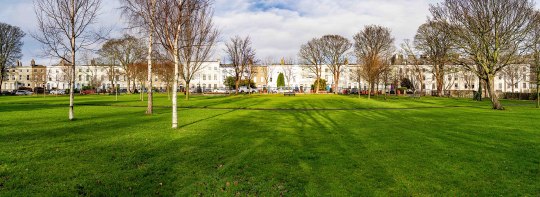
He studied at Trinity College Dublin, which Catholics were barred from attending (by their own leadership) on the grounds that attendance constituted "a moral danger to the faith of Irish Catholics." There, he would have been surrounded by committed Unionists; Trinity was its own parliamentary constituency and voted for Conservative MPs long after the rest of Ireland was supporting Home Rule.
At the same time, he was making friends with nationalists such as John Dillon and described himself as a "philosophical Home Ruler". (Source, which is amazingly comprehensive on the events of Stoker's life).
He must have liked that phrase, because when he wrote his Personal Reminiscences of Henry Irving, published in 1906, he was still using it:
We were all, whatever our political opinions individually, full of the Parnell Manifesto [published 1890 after the divorce scandal and attacking Gladstone] and its many bearings on public life. For myself, though I was a philosophical Home-Ruler, I was very much surprised and both angry at and sorry for Parnell's attitude, and I told Mr. Gladstone my opinion. He said with great earnestness and considerable feeling:
"I am very angry, but I assure you I am even more sorry."
I was pleased to think - and need I say proud also - that Mr. Gladstone seemed to like to talk politics with me...
Above all his admiration for Gladstone, and pride in having him as a friend, shines through in this section.
Different sources interpret what a "philosophical Home-Ruler" is differently. It may be "one who accepted Home Rule as more necessary than ideal" or supporting "Home Rule brought about by peaceful means"; either way, it seems his support for Home Rule was qualified, not full-blooded.
Overall Stoker held a mainstream view, neither adamantly pro-independence nor a defender of the status quo in Ireland. He also seems to have been quite happy to maintain friendships with people who disagreed with him, whether they were Tories or more radically pro-independence.
This is less exciting than takes that I've seen out in the wild, such as "Bram Stoker hated the British Empire and that's why Dracula attacks English people". But it seems to be what the evidence bears out.
96 notes
·
View notes
Text
Stoker, Parnell, and Vampirism
So, while looking up various stuff for future posts (I’ve already read the book and I want to prepare comments on entries ahead of time) I came across this.

Punch magazine was the premier satire magazine in Britain for quite some time. Here we have a caricature of highly influential Irish nationalist politician and organizer Charles Stewart Parnell, shown as a vampire bat menacing the sleeping Hibernia, personification of Ireland. Parnell was an advocate for Irish Home Rule, and if he hadn’t gotten embroiled in a personal scandal and died young, he might have achieved it, and possibly even full independence. Like Bram Stoker, he was a Protestant.
Thought I’d share this for a couple of reasons: First, this was published twelve years before Dracula, and it’s interesting to me that the image of a vampire as a bat had already penetrated public consciousness to the extent the editors of Punch assumed people would understand this image. I knew people in Europe knew vampire bats existed by this point, but I hadn’t known they’d made it into pop culture.
Secondly, given all the discussion about vampire-as-Other that goes on in this fandom, I thought it was kind of interesting to see that Otherness applied in such a specific way to someone of Bram Stoker’s own nationality, creed, and class. But Stoker, while also pro-Home Rule, believed that Ireland should stay part of the British Empire.
Apparently there’s a minority view that interprets Dracula as an allegory for Parnell, or Irish separatism in general; Stoker almost certainly would have viewed Parnell as dangerous, and possibly been disturbed at how people like himself were ‘falling under his spell’. The fact that Parnell’s disgrace was related to sexual impropriety might also be worth noting when we think of Dracula as a sexual threat.
Dunno how likely it is that Stoker had Parnell in mind when he wrote Dracula, consciously or otherwise. But I figure for the sake of broadening our discourse the idea might be worth batting around a bit.
...I swear I did not realize that last line was a pun when I first wrote it.
56 notes
·
View notes
Photo
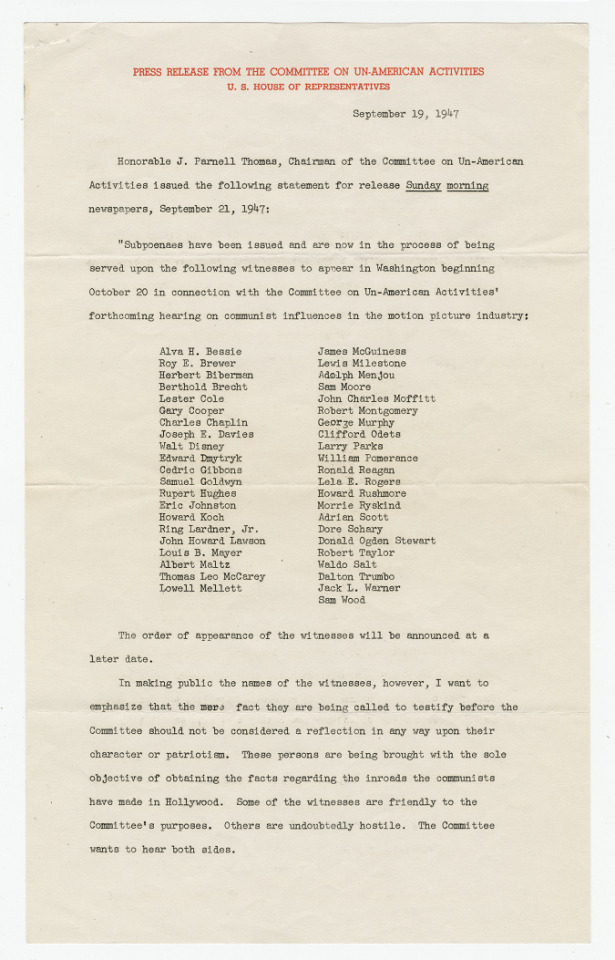

On 9/19/1947, the House Un-American Activities Committee subpoenaed witnesses on the “inroads the communists have made in Hollywood.”
Among the witnesses were Charlie Chaplin, Ronald Reagan, Walt Disney, and others.
File Unit: Exhibits, Evidence and Other Records of the Investigative Section of the Internal Security Committee During the 79th through 94th Congresses Related to the Hollywood Black List, 1945 - 1976
Series: Committee Papers, 1945 - 1975
Record Group 233: Records of the U.S. House of Representatives, 1789 - 2015
Transcription:
PRESS RELEASE FROM THE COMMITTEE ON UN-AMERICAN ACTIVITIES
U.S. HOUSE OF REPRESENTATIVES
September 19, 1947
Honorable J. Parnell Thomas, Chairman of the Committee on Un-American Activities issued the following statement for release Sunday morning ["Sunday morning" underlined] newspapers, September 21, 1947:
"Subpoenaes have been issued and are now in the process of being served upon the following witnesses to appear in Washington beginning October 20 in connection with the Committee on Un-American Activities' forthcoming hearing on communist influences in the motion picture industry:
Alva H. Bessie
Roy E. Brewer
Herbert Biberman
Berthold Brecht
Lester Cole
Gary Cooper
Charles Chaplin
Joseph E. Davies
Walt Disney
Edward Dmytryk
Cedric Gibbons
Samuel Goldwyn
Rupert Hughes
Eric Johnston
Howard Koch
Ring Lardner, Jr.
John Howard Lawson
Louis B. Mayer
Albert Maltz
Thomas Leo McCarey
Lowell Mellett
James McGuiness
Lewis Milestone
Adolph Menjou
Sam Moore
John Charles Moffitt
Robert Montgomery
George Murphy
Clifford Odets
Larry Parks
William Pomerance
Ronald Reagan
Lela E. Rogers
Howard Rushmore
Morrie Ryskind
Adrian Scott
Dore Schary
Donald Ogden Stewart
Robert Taylor
Waldo Salt
Dalton Trumbo
Jack L. Warner
Sam Wood
The order of appearance of the witnesses will be announced at a later date.
In making public the names of the witnesses, however, I want to emphasize that the mere fact they are being called to testify before the Committee should not be considered a reflection in any way upon their character or patriotism. These persons are being brought with the sole objective of obtaining the facts regarding the inroads the communists have made in Hollywood. Some of the witnesses are friendly to the Committee's purposes. Others are undoubtedly hostile. The Committee wants to hear both sides.
[page 2]
PRESS RELEASE FROM THE COMMITTEE ON UN-AMERICAN ACTIVITIES
U.S. HOUSE OF REPRESENTATIVES
- 2 -
The Committee had originally hoped to begin this hearing on September 29. However, a number of unforeseen circumstances have arisen regarding the membership of the Committee which necessitates a delay until October 20, in order that all members may be present for this important hearing. Mr. Mundt and Mr. Nixon are now in Europe as members of Congressional committees studying conditions there. Mr. Veil is convalescing from a recent operation, and Mr. Peterson has informed me that he cannot possibly attend the hearings this month. I feel quite certain, however, that all the members will be available by October 20.
Hearings will begin as scheduled September 24 on the Hanns Eisler phase of this hearing. This cannot be delayed until the October date for the reason that all of the witnesses have been subpoenaed and are in Washington at this time, some having been brought from foreign countries. The announced witnesses in the Hanns Eisler care are as follows:
Sumner Welles
P.C. Hutton, Second Secretary and Consul, Guatemala City, Guatemala
George S. Messermith, former Ambassador to Argentina
Joseph Savoretti, Asst. Commissioner for Adjudication U.S. Immigration and Naturalization Service.
Clarence R. Porter, Chief Inspector U.S. Immigration and Naturalization Service.
Hearings will begin in the Caucus Room of the Old House Office Building, at 10:30 A.M., September 24.
I should also like to announce at this time that I intend to make a nation-wide radio address early in October relative to the Hollywood hearing."
#archivesgov#September 19#1947#1940s#postwar#HUAC#House Un-American Activities Committee#communism#red scare#Hollywood
37 notes
·
View notes
Text
#OTD in 1886 – Home Rule Bill introduced in English Parliament by William Gladstone.
The Acts of Union 1800, united the Kingdom of Great Britain and the Kingdom of Ireland (previously in personal union) to create the United Kingdom of Great Britain and Ireland. At various intervals during this time, attempts were made to destabilise Anglo-Irish relations. Rebellions were launched in 1803, 1848, 1867, and 1916 to try to end British rule over Ireland. Daniel O’Connell in the…
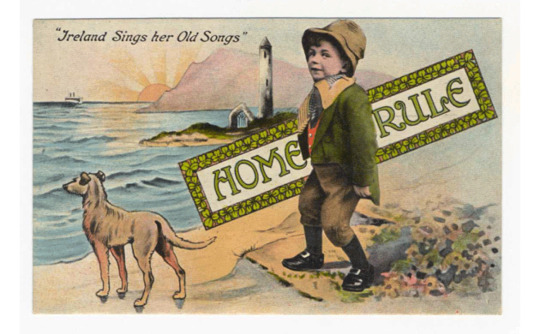
View On WordPress
#Anglo-Irish Treaty#Arthur Griffith#British Commonwealth#Charles Stewart Parnell#Edward Carson#England#History#History of Ireland#Home Rule#Ireland#Irish History#Isaac Butt#Prime Minister William Gladstone#Terence MacSwiney#Ulster
7 notes
·
View notes
Note
Hey dorothy, I finally started listening to Come Out ye Black and Tans and it's a fucking banger. I was wondering if you wouldn't mind providing some context though? What happened in Flanders? ("Show your wife how you won medals down in Flanders") And who was Parnell? ("How you slandered great Parnell")
I'd ask google or wikipedia but they tend to have an english slant towards anything regarding the troubles. That and I prefer learning from people who are passionate about the subject to just reading stuff on my own. ^~^
Flanders refers to World War I. Parnell was Charles Stewart Parnell, a major Irish nationalist leader at the turn of the century.
36 notes
·
View notes
Text
In the Highest Perfection
Avondale, County Wicklow is now irrevocably associated with its late-19th century owner, Charles Stewart Parnell – and anyone who visits the place cannot escape seeing his image across the house and grounds. Less well-known, however, and certainly not as well remembered, is the man who was responsible both for building the house and developing the estate that Parnell was eventually to inherit:…
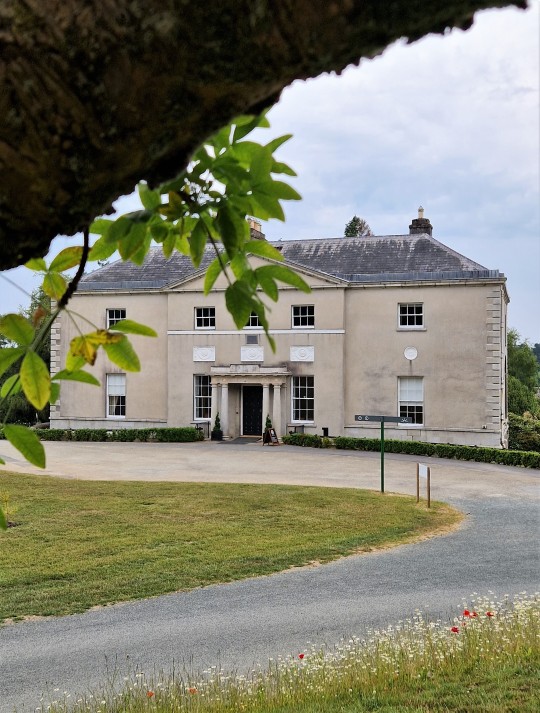
View On WordPress
#Architectural History#Avondale#County Wicklow#Georgian Architecture#Historic Interiors#Irish Country House#The Big House
3 notes
·
View notes
Photo


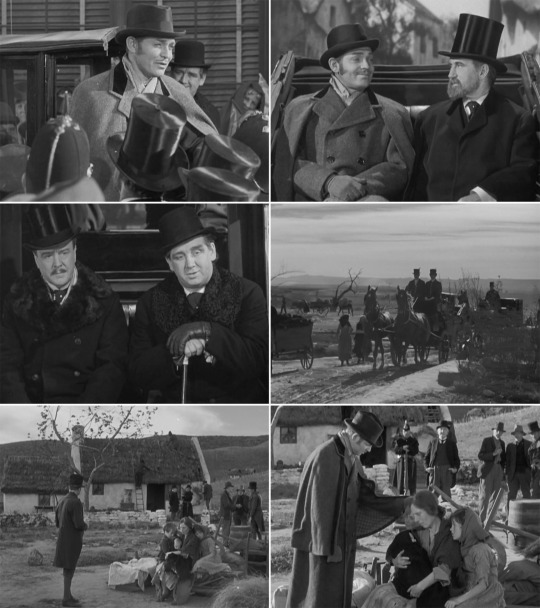
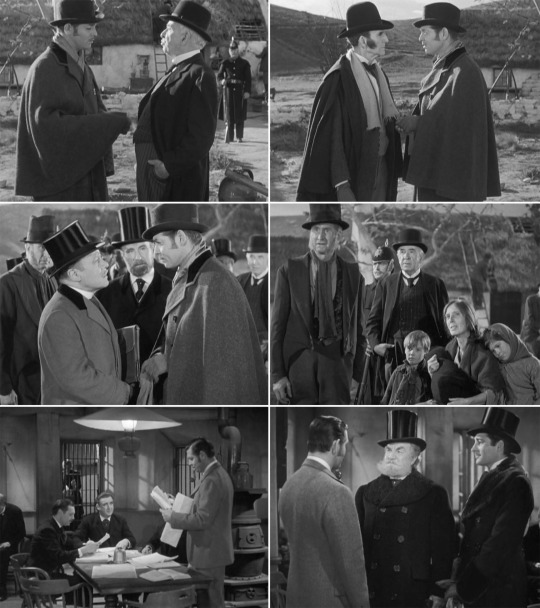
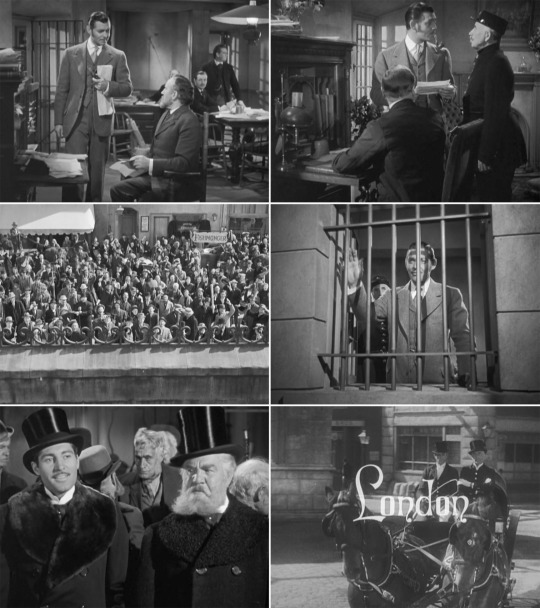


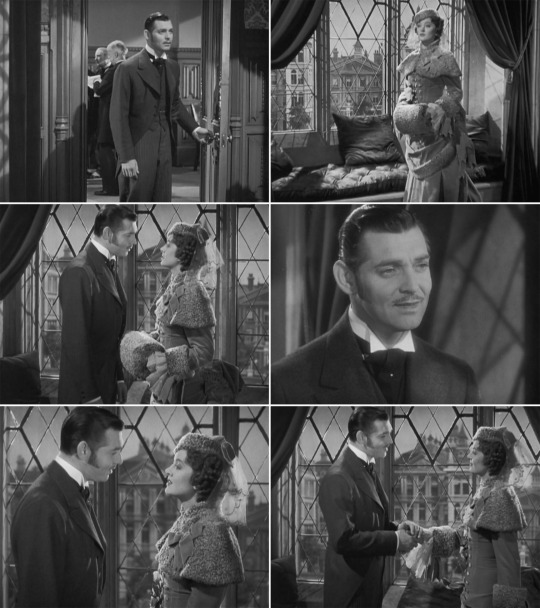
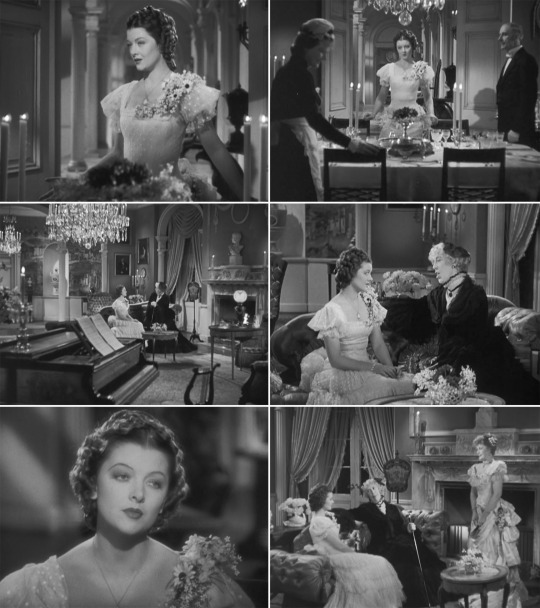
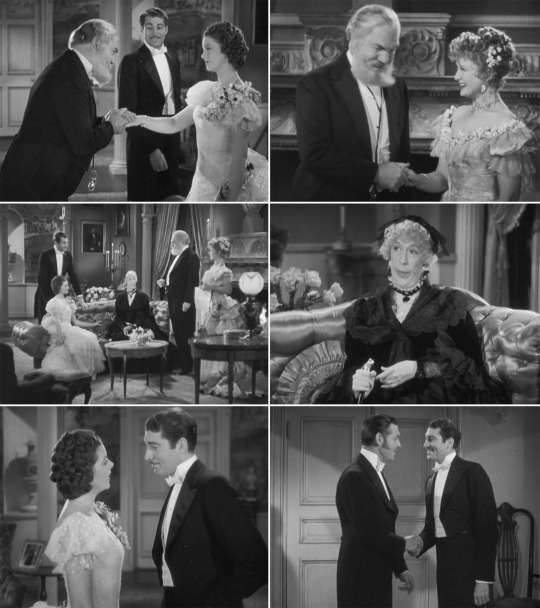
Parnell is a 1937 biographical film starring Clark Gable as Charles Stewart Parnell, the famous Irish politician. It was Gable's least successful film and is generally considered his worst, and it is listed in The Fifty Worst Films of All Time.
Part I
#Parnell 1937#Parnell movie#biographical film#Clark Gable#Charles Stewart Parnell#old hollywood#vintage hollywood#old hollywood movies#old hollywood drama#golden age of hollywood#old movies#costume drama#historical drama#Myrna Loy#Edna May Oliver#Billie Burke#Alan Marshal
11 notes
·
View notes
Text
added a new section, which I will quote here for the fun of it
Some Additional Stuff To Know
Joyce's books take place, generally, at the turn of the 20th century in Dublin, the capital city of Ireland. That was a culture more similar to ours than one might expect, but separated by the ravages of time. Here is where I'll list some general tidbits of context that may help bridge that gap.
WHO THE HELL WAS CHARLES PARNELL?
(a skimming of a complex situation)
Ireland was a colony of the British Empire, who kept a financial and political grip. The history of that is, uh, long and strained. There were, of course, nationalist elements throughout Ireland seeking independence-- the late 1800s saw a number of radicals attempting assassination, rabblerousing, terrorism (I should really refresh my knowledge of this and give a better list sometime), but the State prioritized their neutralization and the People generally tried to keep distance from them. Instead, it was far more common for Irish citizens to live with general discontent and political apathy, as the status quo was entrenched and they saw no way out anytime soon.
Then came Charles Stewart Parnell. From the 1870s through the 1880s, Parnell came to be known as a noble and respected politician who supported Irish Independence and had the know-how to pursue it democratically. He condemned the violent acts and commanded parliament the 'right' way. And so he gave people hope.
HOWEVER. Around 1890, when other attempts to smear his name fell through, one campaign succeeded in ousting him: Word got out about a scandal. Parnell had been keeping a long affair with a married woman (Kitty O'Shea). There were letters. The press took the story and ran with it. Parnell assured his supporters he would be exonerated, but it was too late. The Catholic Church were disgusted; its priests instructed their congregations to view him as a symbol of immorality and danger. And, y'know what, it worked. Parnell lost his public and never got them back. His health rapidly deteriorated and he died shortly after, in 1891.
This is all important to know, as James Joyce was a child when this scandal broke out. His father and uncle were diehard Parnell supporters, even through the scandal, while his governess piously kept with the Church. He witnessed the violent fracturing of a united home, furthermore of a united people. The next few decades were marked by generational grief and a sense of betrayal-- the pious felt betrayed by Parnell's immorality, the fervent felt betrayed by the People's disloyalty. Joyce fell on the latter side, and thus so did his fictional Stephen Dedalus.
If you read any of Joyce's books, you will find references to Parnell, and the broader symbol of a public that wants a hero so they can tear him apart ("Ireland is the sow that eats her young"). In Dubliners, the story "Ivy Day in the Committee Room" shows the remnants of a parliamentary party haunted by Parnell's shadow. In A Portrait of the Artist as a Young Man, you'll see the impact this had on a young Stephen. And Ulysses takes place over a decade after this all went down, so it's less direct, but the memory of Parnell still rests with the city. (During the "Wandering Rocks" episode, Buck Mulligan and Steve Haines see Parnell's brother!) And Finnegans Wake, finally, allows Parnell's ghost a chance to blend in with the rest of history as another HCE figure, builder of cities, father of peoples.
TUBERCULOSIS
(was not to be scoffed at)
At the time of writing this website, we have a global, uh, sensitivity to viral contagion. Covid has us rethinking our place in the world. So it's with that in mind that I bring up TB, the scourge of, uh, a lot of human history, and certainly of the era in which Joyce's books are set.
look man, I'm not the best source for a well-informed overview of a serious disease. forgive me for the casualness here. the truth is, Joyce's books hardly mention TB explicitly, and this is in fact a subject I only became truly aware of like a year ago, so you'd be forgiven for glossing it over too, BUT THAT'S WHY THIS SECTION IS HERE, because TB is absolutely an implicit presence.
The people of Joyce's books know about TB and want to avoid it, but they would rather not go around talking about it because it's a bummer, and Joyce felt no need to spell any of this out because everyone was aware of TB back then, we are an outlier because we actually got a vaccine for it in the 20th century and it was a huge deal. TB is bad. You cough up blood, you deteriorate, you die. And it is very contagious.
People obviously did not have an internet back then, nor did they have airtight ways of spreading helpful information, they just had pillars of tradition that were optimized for specialized subjects and the robust if sometimes slow networks of gossip. General knowledge of TB was "it's bad, and it spreads somehow." There were theories as to how it spread, and therefore how to avoid it, but the common ones... well, their hearts were in the right place. The theory that struck closest, if still inaccurate, was "it spreads through dust and spit. do not make intimate contact with someone before marriage, and keep your house clean." Joyce himself had studied medicine and tried his best to keep up to date with this kind of thing, and that is the theory he sticks to in his books.
So. Dust, and intimacy (specifically with someone who already has TB). When characters in Joyce have dusty furniture, when characters are aware of the dust, keep in mind the deadly implications. When characters long for an intimacy that feels incredibly out of reach, I mean there are a lot of factors there, but remember this one in the back of your head. There is always more context than you know.
5 notes
·
View notes